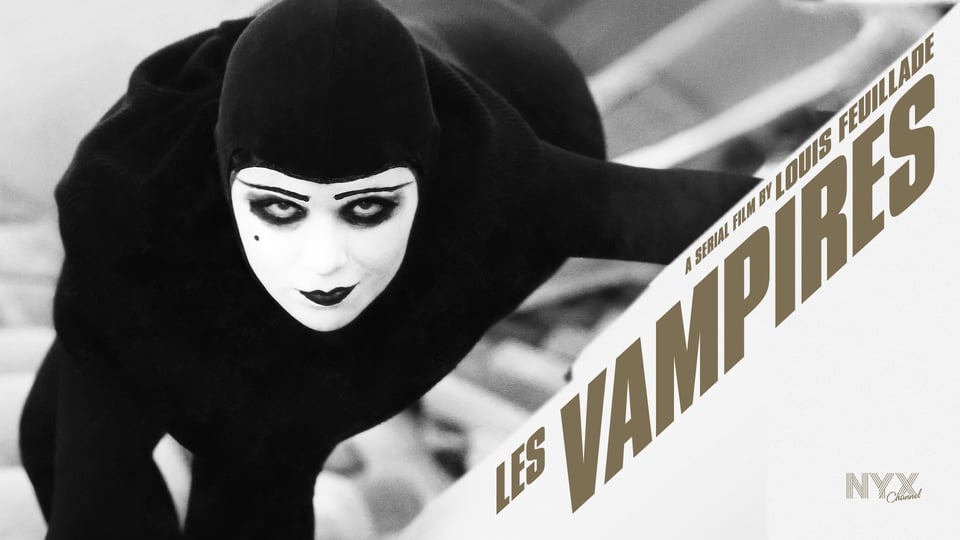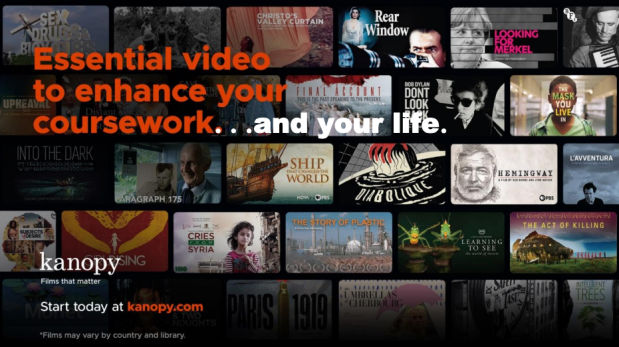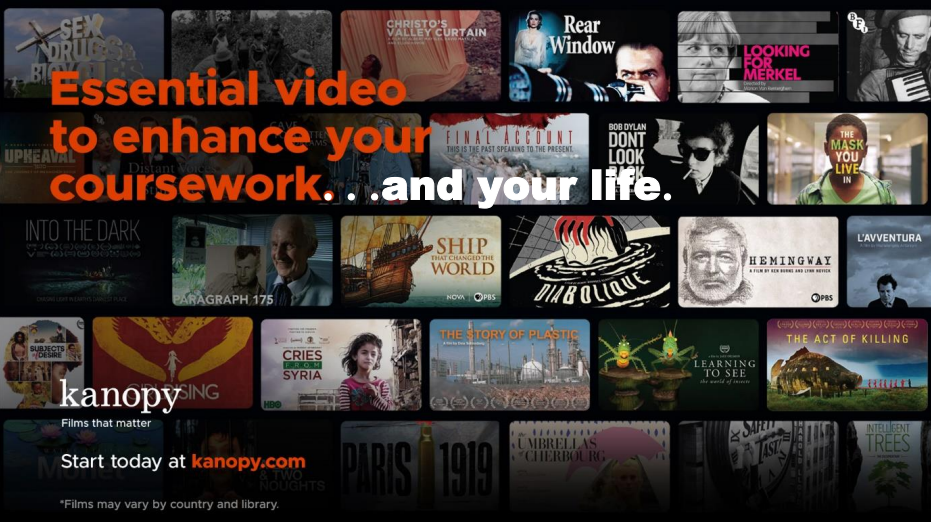Inspired by Cambridge University Library’s upcoming exhibition ‘Murder by the Book: celebrating 20th century British crime fiction‘ we invite you to take a look at some of the murder mystery films and shows available online to members of the University of Cambridge on the Kanopy platform.
Access is available via the Databases A-Z and University of Cambridge credentials are needed to create an account on the platform before you can view.



Murder mysteries from the big screen:
Cast a Dark Shadow – A British fortune-hunter playboy is killing his rich wives in order to inherit their wealth. Based on the 1952 play Murder Mistaken by Janet Green. (1955)
Cowboys – A compilation of six three minute short animated films which comment on contemporary values through a reinterpretation of the myths of the old Wild West. Film three is Murder! – an eye for an eye, a tooth for a tooth. The silent majority get their way. (1992)
Deadly Sweet – A French actor finds his business contact lying murdered on the floor. Rather than call the police, he decides to protect the young woman at the scene and nail down the true killers, putting him on a collision course with the London underworld. Loosely based on the novel Il sepolcro di carta written by Sergio Donati. (1967)
Jet Storm – Passengers on a trans-Atlantic flight from London to New York discover that one of them believes a fellow passenger is the hit-and-run driver who killed his child and has smuggled a bomb on board and intends to use it. (1959)
Jigsaw – A woman is found murdered in a house along the coast from Brighton. Local detectives Fellows and Wilks lead an investigation, methodically following up leads and clues. Based on Sleep Long, My Love by Hillary Waugh (1962)
Loving Memory – A brother and sister living in an isolated farmhouse in Yorkshire accidentally run down and kill a cyclist. (1970)
Sherlock Holmes – Terror by Night – The film’s plot is a mostly original story not directly based on any of Arthur Conan Doyle’s Holmes tales, but it uses minor plot elements of “The Adventure of the Blue Carbuncle,” “The Adventure of the Empty House,” “The Disappearance of Lady Frances Carfax,” and The Sign of Four. (Wikipedia) (1946)
Sherlock Holmes – The Woman in Green – The film follows an original premise with material taken from “The Final Problem” (1893) and “The Adventure of the Cardboard Box . (Wikipedia) (1945)
The Hawk – A Hitchcockian style thriller of a housewife who thinks her husband is a serial killer. (1993)
Wanted for Murder – As the son of a Victorian hangman is driven insane by thoughts of his father’s profession, the young man emulates his father by strangling young women. Based on a play of the same name by Terence de Marney and Percy Robinson. (1946)



The Hitch-hiker – From the USA. The only film noir film to be directed by a woman (Ida Lupino). (1953)
Les Vampires – From France. An intrepid reporter and his loyal friend battle a bizarre secret society of criminals known as The Vampires. (1915)
Salvatore Giuliano – From Italy. Filming in the exact locations and enlisting a cast of native Sicilians once impacted by the real Giuliano, director Francesco Rosi harnessed the facts and myths surrounding the true story of the bandit’s death to create a startling exposé of Sicily and the tangled relations between its citizens, the Mafia, and government officials. (1961)
The Flying Ace – From the USA. A rural crime drama revolving around a pair of rival aviators,THE FLYING ACE illuminates the fact that many films made for African-American audiences were less concerned with race than with making popular entertainment in the traditional Hollywood style. (1926)
Judex – From France. This effortlessly cool crime caper, directed by Georges Franju, is a marvel of dexterous plotting and visual invention. (1963)



Murder on the small screen:
Cruel Train – Based on Emile Zola’s ‘La Bete Humaine’, this stylish film noir is set in Britain during the Blitz.
Dalziel & Pascoe: S2, S3, S4 – Andy Dalziel does not suffer fools gladly. So when the inexperienced, soft-spoken, whiz-kid graduate Peter Pascoe joins his team at Mid-Yorkshire CID, there could be problems. Based on a book series by Reginald Hill. (1996-2007)
Maisie Raine: S1 – Detective Inspector Maisie Raine is a no-nonsense policewoman with years of experience and an instinct for people in trouble. (1998)
Father Brown – In the idyllic English countryside of the 1950s, murder and foul play are afoot. Based on the book series by G.K. Chesterton. (2013-)
Luther – Idris Elba stars as maverick detective John Luther in this gripping, smart and entertaining thriller. (2010-2019)
Quirke – A consultant pathologist in the Dublin city morgue in the 1950s, Quirke is a powerful character more at ease among the cold silent slabs than the company of his fellow men. Based on a book series by John Banville.(2014)
Scott & Bailey – Moving and exciting drama series follows the lives of Janet Scott and Rachel Bailey – Detective Constables in a Manchester Major Incident Team led by the formidable DCI Gill Murray. (2011-2016)
Death in Paradise – DI Richard Poole is sent to the paradise island of Saint-Marie in the Caribbean to solve an impossible murder. A book series was created by Robert Thorogood based on the TV series. (2011-)
The following text is taken from our day 11 of our 2023 Advent Calendar, authored by Melendra Sutliff Sanders, Research Support Librarian / German / Film Studies, Modern & Medieval Languages and Linguistics Library.
Looking for some thought-provoking entertainment?
Have a look at Kanopy’s collection of award-winning films and documentaries.
Follow the University of Cambridge Kanopy Link to create account. All you need is your University of Cambridge credentials.
Once you’ve logged in, you can stream 100s of award-winning films and television shows. It’s easy to search for specific titles. Or, if you’re open to suggestions, check out the Browse options.
All films have close captioning and can be viewed from anywhere in the world.
Visit the Film and Screen Studies LibGuide for access to more resources available to you in Film Studies.









